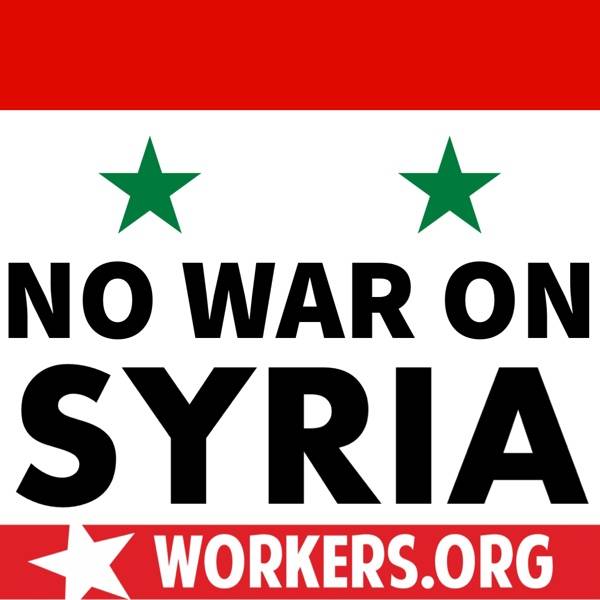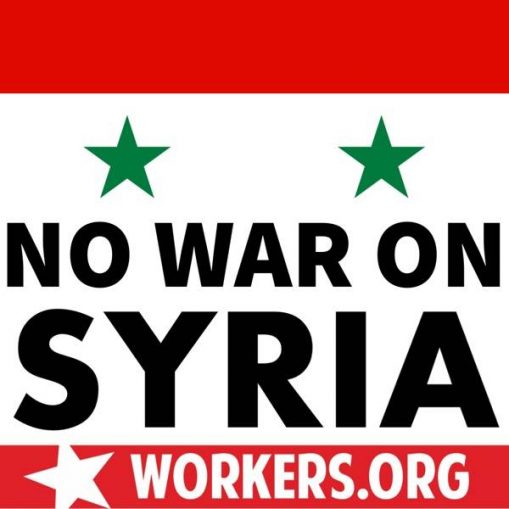



Israel launched further strikes in Syria on May 10 against what it claimed to be Iranian infrastructure, a claim both Syria and Iran have refuted. This Zionist aggression escalated into an exchange of missiles with Syria, making it the first time Syria has struck the Zionist occupation since 1974. Syrian missiles targeted occupation infrastructure in the Golan Heights, Syrian land occupied since 1967. The Israelis tried to pin these missiles on Iran, too.
Trump campaigned on a promise to destroy the JCPOA. At the beginning of 2017, he focused his international warmongering on Iran first and foremost, before moving on to Venezuela, Syria, the Democratic People’s Republic of Korea and others.
To some it may appear that this figurehead of world imperialism has a personal enmity toward the Islamic Republic. Perhaps he is driven by deep ideological convictions explained away by neo-conservatism. Maybe the Israeli lobby has become powerful enough to lead the U.S. into wars on its own behalf, against U.S. “national interests.” Many in the mainstream press say Trump is simply unintelligent.
In contrast to these half-baked bourgeois narratives, material reality tells us a different story. For starters, a reality TV star doesn’t tell the Pentagon what to do, ideology cannot overrule capital, and in the case of Israel, the tail doesn’t wag the dog. Every war Israel has waged has benefited Wall Street and the U.S. capitalist ruling class.
As Gen. Alexander Haig, secretary of state under President Ronald Reagan, said in 1981, “Israel is the largest U.S. aircraft carrier in the world that cannot be sunk.”
U.S. for nuclear plans under Shah
There was a time when U.S. capitalists planned a nuclear program for Iran. Under the Shah, a U.S. puppet, General Electric and Westinghouse won eight contracts to construct nuclear reactors in Iran. Before the Islamic Revolution of 1979, Iran had plans to buy 18 nuclear power reactors from the U.S., France and Germany.
During the Shah’s reign, the U.S. wanted Iran to be less domestically dependent on oil and export its black gold on the world market, profiting the U.S. firms that controlled the oil. Today the opposite is true.
Threats against Iran’s nuclear development, and the previous U.S. interest in limiting Iranian uranium enrichment, were always rooted in U.S. economic dependence on oil. Trump’s decision to kill the JCPOA isn’t in contradiction with this fact; it is a sign that U.S. capitalists are more desperate than ever to maintain their oil and gas profits — desperate enough to recklessly pursue a regional war to devastate Iran and expand existing U.S. occupations.
For decades Wall Street and the military-industrial complex fed off of a massive flow of petrodollars from Saudi Arabia and other comprador regimes in the Persian Gulf. The U.S. invasion of Iraq ushered in the fracking boom and a myriad of other huge, unsustainable profits for big oil. That bubble burst, but the insatiable need for profits has some hoping they can relive the magic of the George W. Bush era through Trump.
The unilateral action of the U.S. concerning the JCPOA has strong implications for its relationship with Europe. Though the imperialist powers stand united in most colonial policies, Europe is growing increasingly destabilized, and there is discontent among different elements of the European bourgeoisie with the U.S. These contradictions would be exacerbated by expanded wars in West Asia. The U.S. has historically used control of the region’s oil resources as leverage over Europe. A regional war would strengthen U.S. capital at their expense. It’s unlikely, however, that these elements would pose any challenge to a new U.S. war.
Pentagon setbacks in Syria
Setbacks for the U.S. on the Syrian front are a major factor in the drive to war with Iran. Since the Russian intervention in September 2015, the Syrian state and allied forces have had one decisive victory after another. Thousands of death squad fighters, with billions of dollars in funding and often advanced weaponry, have been disbanded, disarmed or defeated. Any hope of the U.S. or its allies to liquidate the Syrian nation through proxy forces has been completely abandoned.
Syria is now confronted directly by a Turkish invasion in the northwest, a U.S. occupation through the YPG (the Kurds’ People’s Protection Units) across northern and eastern Syria, a U.S.-Jordanian base close to Jordan in al Tanf, an Israeli occupation of the Golan Heights and a buffer zone of Israeli-supported contras surrounding it. Despite this, Syria controls the majority of its land.
This direct confrontation marks a new and very dangerous phase of the war against Syria. Syrian President Bashar al-Assad confirmed this in a recent interview in which he said Syria is fighting the terrorists, meaning the armies of Turkey, the U.S. and Saudi Arabia.
“Forget about the different factions and who is going to finance those factions; at the end, they work for one agenda, and those different players obey one master: the American master. [Turkish President] Erdoğan is not implementing his own agenda; he’s only implementing the American agenda, and the same goes for the other countries in this war.
“So, first of all, you have to fight the terrorists. Second, when you take control of more areas, you have to fight any aggressor, any army. The Turkish, French, whoever, they are all enemies; as long as they came to Syria illegally, they are our enemies.” (sana.sy/en, May 10)
Though Iran has an extremely limited presence in Syria, it has been a longtime ally of Syria and played a vital role in defeating proxy armies there. A direct confrontation with Syria is, de facto, a direct confrontation with Iran. Iran has expressed multiple times that if it doesn’t stop ISIS and its ally, the United States, in Syria and elsewhere, Iran will have to defend itself on its own territory.
The opening of the U.S. Embassy in Jerusalem, the Israeli strikes in Syria, the ongoing massacres of Palestinians commemorating the Nakba, the cancelling of the nuclear deal, and other regional provocations are also aimed at a key ally of Syria, Iran and the Palestinians: the Lebanese Islamic resistance, Hezbollah. The Lebanese resistance and their allies won an impressive victory in the May 6th Lebanese elections, solidifying the bond between liberation forces and the Lebanese state.
The U.S. and Israel are itching for a war to tip the balance of forces in the region by dealing a decisive blow to Hezbollah. Hezbollah itself has warned that the next time it fights Israel, it won’t be alone. Iran, Syria and national liberation forces throughout the region will fight alongside them.
The U.S. and Israel are moving in concert toward a wider war against Syria and Iran, a war for the benefit of U.S. banks, oil corporations and the military-industrial complex. This war will not only cost millions more lives in West Asia, it will plunge working class and oppressed people around the world into further devastation.
The working class and oppressed peoples may be at different barricades around the planet, but we are all struggling for survival and a new world against this suicidal imperialist system.
Raposo is a Portuguese Marxist analyst, editor of the web magazine jornalmudardevida.net, where this article…
By Alireza Salehi The following commentary first appeared on the Iranian-based Press TV at tinyurl.com/53hdhskk.…
This is Part Two of a series based on a talk given at a national…
Educators for Palestine released the following news release on July 19, 2025. Washington, D.C. Educators…
On July 17, a court in France ordered the release of Georges Abdallah, a Lebanese…
The following are highlights from a speech given by Yemen’s Ansarallah Commander Sayyed Abdul-Malik Badr…